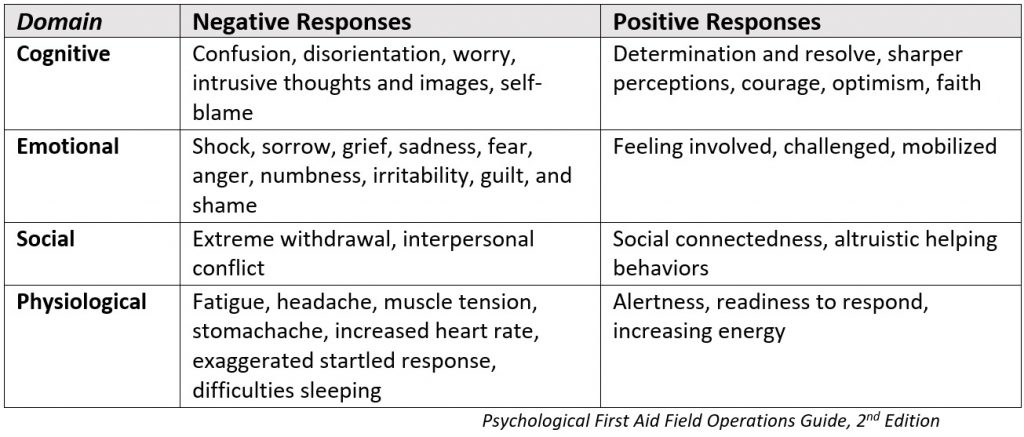I recently returned from Nigeria, where we work with many who have a heart to help the hurting. They usually relate to the suffering from their own experiences of pain, fear, loss, and sorrow. Some saw their villages attacked, churches burnt to the ground, and family members hurt or even killed. Others (particularly recently) had a congregation member, a friend, a brother-in-law, even a daughter kidnapped, and each went through the agony of waiting and negotiating, before being reunited. One man we met didn’t have that reunification; his wife had been killed. While some carried scars, whether visible on the outside or deeply buried, others still bore gaping emotional and spiritual wounds. They struggled with the classic questions: Why did God allow this? How can life ever be “normal” again? Does God not love me? Will justice ever be served?
They Aren’t the First to Experience These Kinds of Struggles
In the New Testament we read the story of a man who seemed to have a habit of encountering extreme “tribulations.” Paul summarizes them in 2 Corinthians 11:23-30:
- Beatings and stoning

- Shipwrecks
- Imprisonments
- Danger from rivers, wilderness, and sea
- Danger from Jews, Gentiles, and false brethren
Paul experienced what we would today call “trauma.” From the psychological definition, trauma is:
…witnessing an actual occurrence or threat of death, serious injury, or sexual violence. Sometimes it is experienced directly, but it can also occur when witnessing it happen to someone else, hearing about it happening to a close family member or friend, or being exposed to frequent description of details (such as those helping traumatized individuals and hearing many stories).[i]
Paul’s experiences certainly meet the criteria of trauma! Yet, it did not seem to deter him in his ministry, his travel to “unsafe” places, and the writing of encouraging letters to churches and individuals in whom he had invested his life… even to the point of risking it. So how did he even function? The reality is that he was not a superhuman, constantly smiling and never complaining, yet he still found joy. He admitted being in a place of struggle. In 2 Corinthians 7:5-7 Paul recounts: “For when we came into Macedonia, we had no rest, but we were harassed at every turn—conflicts on the outside, fears within. But God, who comforts the downcast, comforted us by the coming of Titus, and not only by his coming but also by the comfort you had given him. He told us about your longing for me, your deep sorrow, your ardent concern for me, so that my joy was greater than ever” (NIV, emphasis mine). God brought comfort, and God used people.
Natural Reactions to Trauma
It is normal, even expected, for people to feel overwhelmed in the midst of trauma. Our bodies are wired to respond quickly when we are in danger: that is how we can survive! When our brain gives the signal, the rest of the body immediately gets ready to protect itself, whether by fighting, fleeing, or freezing. That is why our heart beats faster, we start to sweat, we breathe more quickly, and all our energy is pumped into our blood, ready to be used. When we are in immediate danger, we don’t take time to think through next steps (using the reasoning part of the brain), we react instinctively.
Many reading this have experienced trauma: perhaps being victim of a crime, seeing a car accident, watching a loved one die, experiencing abuse, witnessing a natural disaster, fighting in Iraq, or hearing stories of atrocities and seeing images on the news. As a result of that experience, some have ongoing high levels of stress, affecting our thoughts, emotions, physiology, and relationships. Early on reactions include positive and negative responses[ii]:
Everyone is different, with a unique set of responses. If any of this describes you, take comfort! You are not alone and there is hope. You don’t have to forever stay stuck in the frustrating physical and emotional reactions to little triggers. In the next post we’ll talk about recovery and resilience.
These reactions are not from failure to exhibit enough faith and strength, even when recovery does not come immediately. They are simply a reflection of how well our bodies are equipped to manage such extreme stress, and how well the brain can recover—especially if there is a lack of safety and security or an ongoing source of stress. Two people might experience the same trauma and have different reactions; multiple factors will influence their capacity to manage that level of intensity. Biological (e.g. age, gender), situational (severity of event, safety afterwards), relational (sources of support, healthy/unhealthy relational patterns), and spiritual (belief systems, source of hope) factors all contribute to how we recover from trauma and loss.
Seeing the Trauma of Others
Maybe you haven’t gone through a severe trauma. Odds are that someone else in your life has. Understanding reactions to trauma can help us have grace for those for who are acting in ways that seem irrational and inconsiderate. As we’ll discuss in the next posts, you can play a valuable role in helping traumatized individuals, just as Titus and the church in Macedonia did for Paul.
Trauma is too often unnoticed or ignored, but we can take part in changing that. It all starts with awareness and understanding of what is happening across the globe and in our own back yard.
[i] The descriptions are based on the Diagnostic Statistical Manual (DSM 5).
[ii] Psychological First Aid Field Operations Guide, 2nd Edition




One Comment